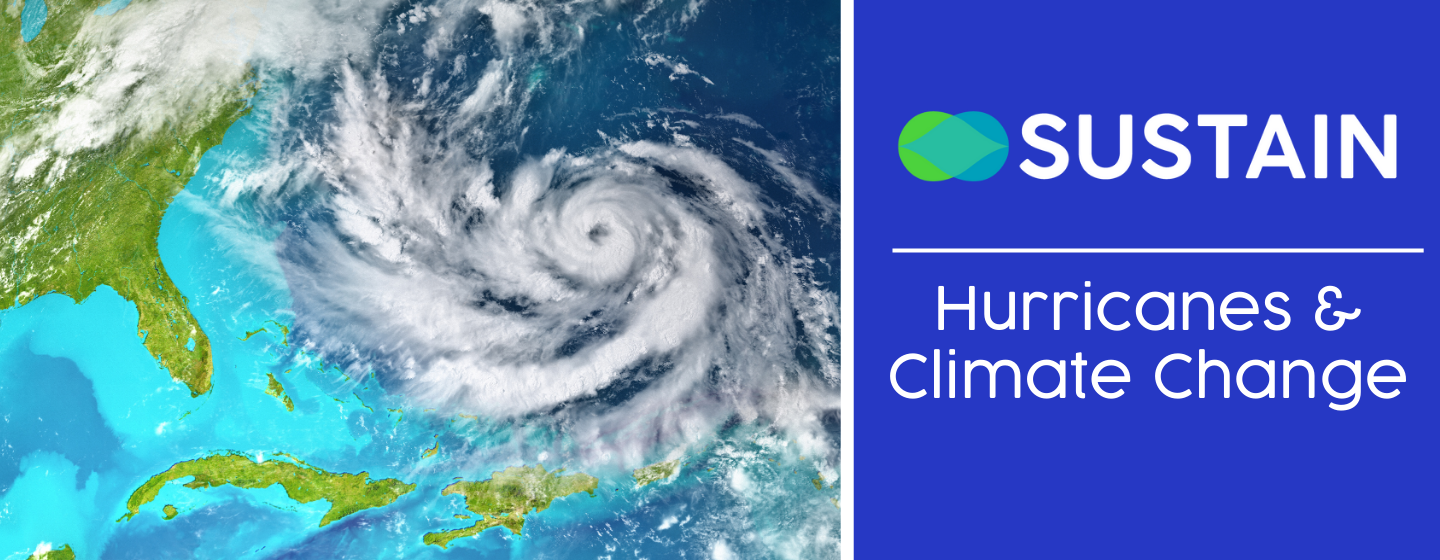Hurricanes & Climate Change



Hurricane season runs from June 1st to November 30th, with the peak between mid-August and late October, when temperatures in the Gulf of Mexico and the Atlantic Ocean are warmest. Florida is the state most vulnerable to hurricanes and tropical storms, being hit by twice as many storms as the second-place state of Texas. And these storms are becoming more intense. According to the NOAA, tropical cyclones have become more likely to develop into major hurricanes, intensify quickly, and cause more precipitation and coastal flooding in recent years. This gives Floridians less time to prepare and will make recovery more costly. But why are hurricanes becoming more intense?
Hurricane records have shown more active hurricane seasons in the Atlantic Ocean since the 1980s. There have been more storms on record that are stronger and intensify more rapidly than in the past. Most of these increases have been due to natural variations in our climate, but recent studies have begun to link the impact of climate change on hurricanes.
There are four main elements that are needed for a hurricane to form and strengthen:
Ocean surface temperatures in the Atlantic are now 3-5 degrees above normal. Rising ocean temperatures due to climate change make hurricane winds more intense. This means that a greater proportion of storms that form will reach a Category 4 or 5 on the Saffir-Simpson Wind Scale, with wind speeds over 130 miles per hour that can cause catastrophic damage.
Wind speeds are not the only concern. Flooding from hurricanes has become more of an issue as well. Tom Knutson, NOAA's leading scientist on hurricanes and climate change, notes that "even if hurricanes themselves don't change [due to climate change], the flooding from storm surge events will be made worse by sea level rise."
In addition to flooding from storm surges, models also show a 10 to 15 percent increase in rainfall rates from hurricanes by the end of the century. This is because climate change has led to warmer surface temperatures on Earth, which means more moisture in the air from evaporation, leading to greater rainfall, especially during extreme weather events such as hurricanes.
All of these factors combined could make the 2024 hurricane season the most active on record. The NOAA Climate Prediction Center predicts an 85% chance of an above-normal hurricane season with a forecasted 17 to 25 named storms (winds at 39 mph or higher) with 8 to 13 becoming hurricanes (winds of 74 mph or higher) with 4 to 7 major hurricanes (category 3, 4, or 5 with winds of 111 or higher).
Although we cannot control the frequency or intensity of hurricanes, it is crucial to be prepared for when a storm hits. The Florida Public Radio Emergency Network offers resources for planning and preparing for hurricane season.
We know storms are becoming more intense and frequent due to climate change. Ensuring you and your loved ones are prepared is the best way to make sure you are safe when a major hurricane is heading for Florida.
Did you learn something new? Please take a moment to answer this short survey.